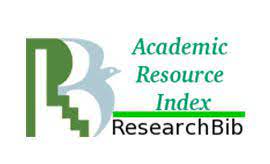TEACHING INVENTORY: EXPERIENCE AND FUTURE
DOI:
https://doi.org/10.51707/2618-0529-2023-26-11Keywords:
pioneering inventions, theory of solving inventive problems, training of young scientists.Abstract
The scientific and industrial revolution is the result of constant competition between the world’s leading producers of goods. It arose as a result of the introduction of scientific discoveries into technical systems — means and technologies and their use. The inventions created at the same time were based on the use of new phenomena, either recently discovered by science, or those whose application has not yet found a place in the technical systems of certain branches of technology. In economics, such inventions are called pioneering. But precisely such new systems, according to the conclusions of M. D. Kondratiev, at one time ensured the exit of the world economy from crises. And precisely such technical systems with new principles of action, more technically and economically effective, according to R. Foster’s conclusions, ensured the prosperity of the economy of the leading countries of the world in the XX century. Product manufacturers who create such inventions get a monopoly, thanks to which they continue to develop their production, pay decent wages to employees and large taxes to the state, a large part of which goes to the maintenance of social institutions and so on. At the same time, education, science and culture are developing. The economy of such countries is flourishing. And creative work develops the mental and creative abilities of inventors, puts forward new requirements for the content and results of education. The article provides the importance of pioneering inventions for the development of the economy and society, an overview of the strategies of corporations and the use of the theory of solving inventive problems, its components and their application in the training of young scientists. The interest of young scientists in mastering this theory and the development of their creative and inventive potential during the learning process was noted.
References
Kondratyev, N. D. (1989). Problemy ekonomicheskoy dinamiki [Problems of economic dynamics]. Moscow : Ekonomika [in Russian].
Foster, R. (1987). Obnovleniye proizvodstva: atakuyushchiye vyigryvayut [Production update: Attackers win]. Moscow : Mir [in Russian].
Golibardov, E. I. & Panchenko, E. G. (1991). Organizatsionno-khozyaystvennaya perestroyka promyshlennogo predpriyatiya [Organizational and economic restructuring of the industrial enterprise]. Kiyev : Tekhnika [in Russian].
Khotyasheva, O. M. (2005). Innovatsionnyy menedzhment [Innovative management]. SPb : Piter [in Russian].
Altshuller, G. S., Zlotin, B. L., Zusman, A. V., & Filatov, V. Y. (1989). Poisk novykh idey: ot ozareniya k tekhnologii (teoriya i praktika resheniya izobretatelskikh zadach) [Development new idea: from incite to technology (theory and practice of inventive problem solving)]. Kishinev : Moldovenyaske [in Russian].
Kapitsa, Yu. M., & Turov, M. P. (2017). Suchasni pidkhody do stvorennia konkurentospromozhnykh vynakhodiv ta vyrishennia vynakhidnytskykh zadach. Vykorystannia tekhnolohii “Evronika” dlia pidvyshchennia konkurentospromozhnosti natsionalnoi nauky, promyslovosti [New ways for inventionship pioneers inventions and answers of inventions tasks. Using Evronika tekhnology for help to national science and plants]. Kyiv : NANU, TVRU [in Ukrainian].
Zlotin, B. L., & Zusman, A. V. (1988). Mesyats pod zvezdami fantazii [Month under the stars of fantasy]. Kishinev : Lumina [in Russian].
Zlotin, B. L., & Zusman, A. V. (1989). Izobretatel prishel na urok [The inventor came to class]. Kishinev : Lumina [in Russian].
Downloads
Published
How to Cite
Issue
Section
License
Copyright (c) 2023 Scientific notes of Junior Academy of Sciences of Ukraine

This work is licensed under a Creative Commons Attribution 4.0 International License.













